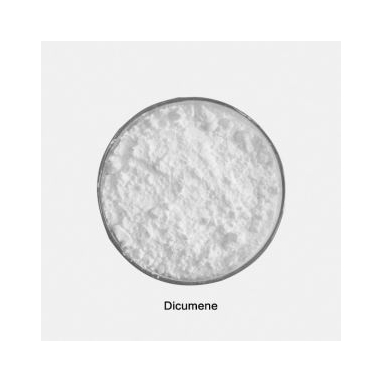Understanding the Applications and Benefits of Dicumene in Industrial Processes
What is Dicumene and Why is It Important?
 Dicumene, a widely used organic compound in various industrial applications, has gained attention for its effectiveness in processes that require stability and reliability under high temperatures. Known chemically as 2,3-dimethyl-2,3-diphenylbutane, dicumene plays a vital role in polymerization, particularly as a polymerization initiator. In this article, we’ll explore what dicumene is, its primary uses, and its benefits in manufacturing and other industrial settings.
Dicumene, a widely used organic compound in various industrial applications, has gained attention for its effectiveness in processes that require stability and reliability under high temperatures. Known chemically as 2,3-dimethyl-2,3-diphenylbutane, dicumene plays a vital role in polymerization, particularly as a polymerization initiator. In this article, we’ll explore what dicumene is, its primary uses, and its benefits in manufacturing and other industrial settings.
An Overview of Dicumene's Properties
Dicumene is valued in industries due to its distinct chemical and physical properties. Understanding these attributes helps clarify why it is so essential in specific applications.
Key Characteristics of Dicumene
- Chemical Formula: C18H22
- Structure: It has a unique structure, consisting of two phenyl groups connected by a central butane chain.
- Thermal Stability: Dicumene is exceptionally stable at high temperatures, which is essential for applications that involve heat.
These properties make dicumene a suitable additive in industrial processes that demand consistency and endurance in extreme conditions.
Primary Uses of Dicumene
Dicumene serves numerous functions across different industries, from polymerization to creating advanced materials.
Polymerization Initiator
One of the primary roles of dicumene is as a polymerization initiator. In this capacity, dicumene helps to start and regulate polymerization reactions, which is critical in the production of synthetic rubbers, plastics, and other polymers. It decomposes at elevated temperatures to generate free radicals, which are necessary to initiate and control the polymer chain reactions.
Cross-Linking Agent
Dicumene is also used as a cross-linking agent, particularly in the production of rubber. Cross-linking improves the strength, elasticity, and resilience of rubber products, making them more suitable for use in demanding environments, such as automotive and industrial settings.
Additive in Industrial Processes
Besides its role in polymerization, dicumene is used as a specialty additive in several industrial applications. It enhances the durability and stability of materials, making it particularly useful in products exposed to harsh conditions.
Benefits of Using Dicumene in Industrial Applications
Incorporating dicumene into industrial processes comes with several advantages.
Enhanced Product Stability
Due to its thermal stability, dicumene improves the durability of materials that must withstand high temperatures. This stability leads to longer-lasting products, reducing replacement costs over time.
Cost-Effectiveness
By promoting efficient polymerization, dicumene can streamline production processes, potentially lowering manufacturing costs. It allows companies to achieve consistent product quality without needing costly adjustments.
Versatile Use Across Industries
The versatility of dicumene makes it a valuable asset in various fields, from automotive to consumer goods manufacturing. Its effectiveness in diverse applications makes it a reliable choice for manufacturers seeking robust, flexible solutions.
Key Considerations When Using Dicumene
While dicumene is advantageous in many settings, some safety and handling guidelines should be observed due to its chemical properties.
Safe Handling Practices
When working with dicumene, it’s essential to follow safety protocols, including proper storage and usage guidelines. Always wear appropriate protective gear and ensure that dicumene is stored away from extreme heat and incompatible substances.
Environmental Impact
As with many industrial chemicals, considering dicumene’s environmental impact is essential. Using dicumene responsibly and disposing of it according to regulations can help minimize its ecological footprint.
Conclusion: The Role of Dicumene in Modern Manufacturing
Dicumene’s unique properties make it a cornerstone in manufacturing processes that require heat resistance, strength, and durability. From acting as a polymerization initiator to enhancing material stability, dicumene is invaluable across a range of applications. By understanding its properties and benefits, manufacturers can leverage dicumene to produce high-quality, long-lasting products while maintaining efficient and cost-effective processes.





